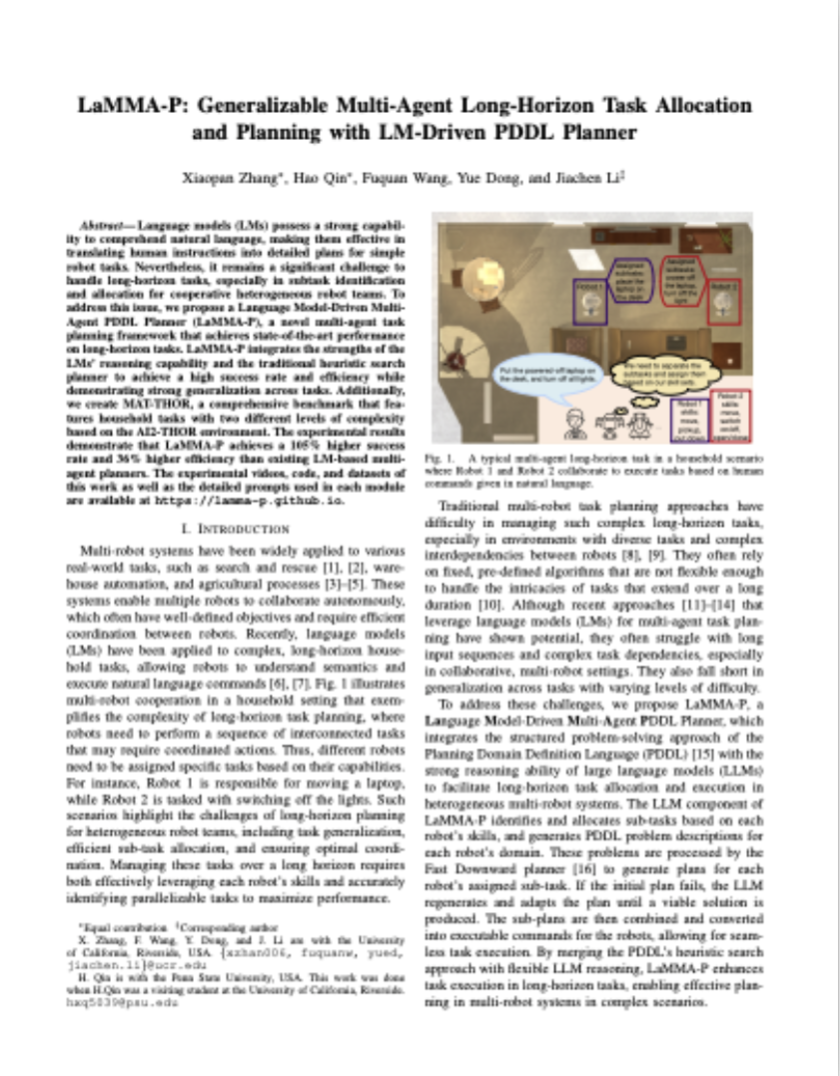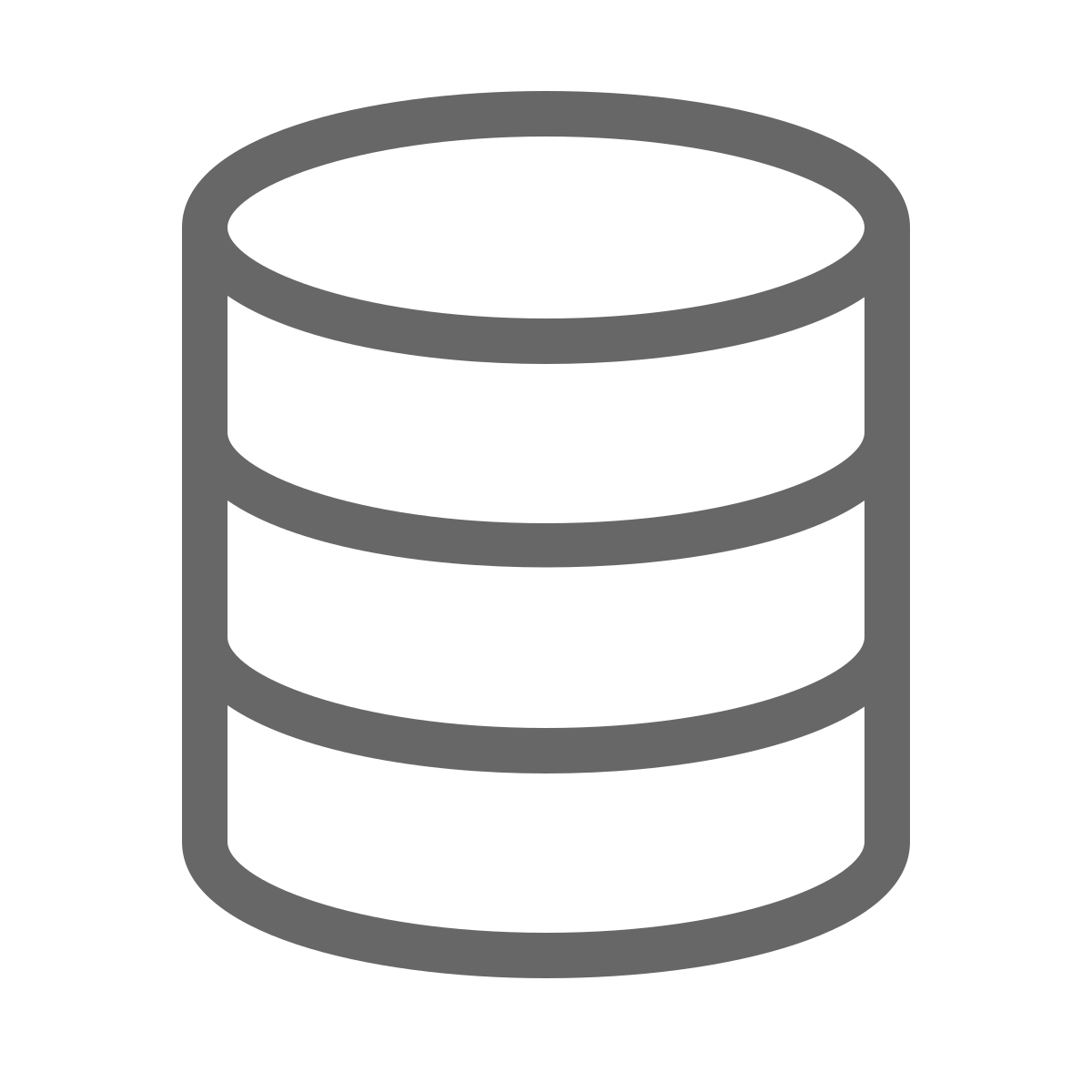LaMMA-P: Generalizable Multi-Agent Long-Horizon Task Allocation and Planning with LM-Driven PDDL Planner
- Xiaopan Zhang*
- Hao Qin*
- Fuquan Wang
- Yue Dong
- Jiachen Li‡
*Equal contribution, ‡Corresponding author
A Language Model-Driven Multi-Agent PDDL Planner, which integrates the structured problem-solving approach of the Planning Domain Definition Language (PDDL) with the strong reasoning ability of large language models (LLMs) to facilitate long-horizon task allocation and execution in heterogeneous multi-robot systems.
Visualizations of generated plans for tasks of varying difficulty levels across diverse scenarios:
Compound task: turn off the lights, place the phone on the bed, and leave the book open.
Complex task: place the watch and the key ring into the drawer, and then turn off the TV.
Complex task: microwave a plate containing an egg and a tomato.
Vague command task: prepare the shower and throw away any trash.
Abstract
Language models (LMs) possess a strong capability to comprehend natural language, making them effective in translating human instructions into detailed plans for simple robot tasks. Nevertheless, it remains a significant challenge to handle long-horizon tasks, especially in subtask identification and allocation for cooperative heterogeneous robot teams. To address this issue, we propose a Language Model-Driven Multi-Agent PDDL Planner (LaMMA-P), a novel multi-agent task planning framework that achieves state-of-the-art performance on long-horizon tasks. LaMMA-P integrates the strengths of the LMs’ reasoning capability and the traditional heuristic search planner to achieve a high success rate and efficiency while demonstrating strong generalization across tasks. Additionally, we create MAT-THOR, a comprehensive benchmark that features household tasks with two different levels of complexity based on the AI2-THOR environment. The experimental results demonstrate that LaMMA-P achieves a 105% higher success rate and 36% higher efficiency than existing LM-based multi-agent planners.
Key Ideas and Contributions
2) Modular Design: We develop a modular design that allows seamless integration of LLMs, PDDL planning systems, and simulation environments, which enables flexible task decomposition and the efficient allocation of sub-tasks based on the skills and capabilities of each robot.
3) Novel Dataset and Performance Boost: We create MAT-THOR, a benchmark of multi-agent complex long-horizon tasks based on the AI2-THOR simulator, which evaluates the effectiveness and robustness of multi-agent planning methods by providing a standardized set of tasks and performance metrics for long-horizon task execution. Our method achieves state-of-the-art (SOTA) performance on this benchmark in terms of success rate and efficiency.
Evaluation of LaMMA-P and baselines on different categories of tasks in the MAT-THOR dataset


